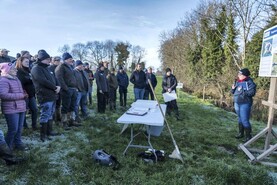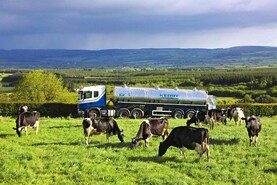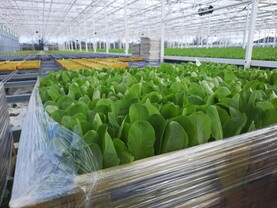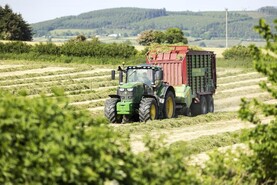Some €10m in EU Just Transition Fund money has been allocated to two new bioeconomy projects.
The projects will result in development of innovation hubs to create new products as an alternative to fossil-based production, demonstrating the bioeconomy in action in both Co. Tipperary and Co. Offaly.
Funding of €5m is being awarded to the Lisheen Bioeconomy Scaleup Initiative (BioScaleUp). Led by Tipperary County Council, it will demonstrate six innovative technologies at the national pilot biorefinery facility at the National Bioeconomy Campus, Lisheen Thurles, Co Tipperary.
The initiative will see collaboration between universities, the Irish Bioeconomy Foundation, and dairy and forestry bioprocessing industries.
It will include scaling up and demonstrating the conversion of dairy side streams, food waste and wood processing wastewater into biobased chemicals, materials and other valuable biobased products and services.
These could eventually be used as food ingredients or as biobased ingredients in the cosmetic and pharmaceutical sectors, displacing fossil-based ingredients for example.
Mount Lucas project
A further €5m is being awarded to the Mount Lucas Circular Bioeconomy Aquaculture Initiative (Circular IMTA), which is led by the Technological University of Shannon.
It will demonstrate the production of new feeds and food ingredients from cultivated-duckweed and macroalgae at scale, using agri-food waste streams produced at a circular peatland integrated aquaculture site at Mount Lucas in Co Offaly.
Both projects will also include significant training and upskilling opportunities in both facilities across a range of scientific, technical, and engineering, facilitation, business and finance areas related to biorefinery and biomanufacturing.
Commenting on the two newly funded initiatives, Minister McConalogue stated: “The bioeconomy has the potential to improve the environmental, economic, and social sustainability of the agri-food sector through offering diversification opportunities, through the development of new products, business models and value chains, and reducing the use of non-sustainable inputs in all economic sectors including in the agri-food sector.”






 This is a subscriber-only article
This is a subscriber-only article










SHARING OPTIONS: